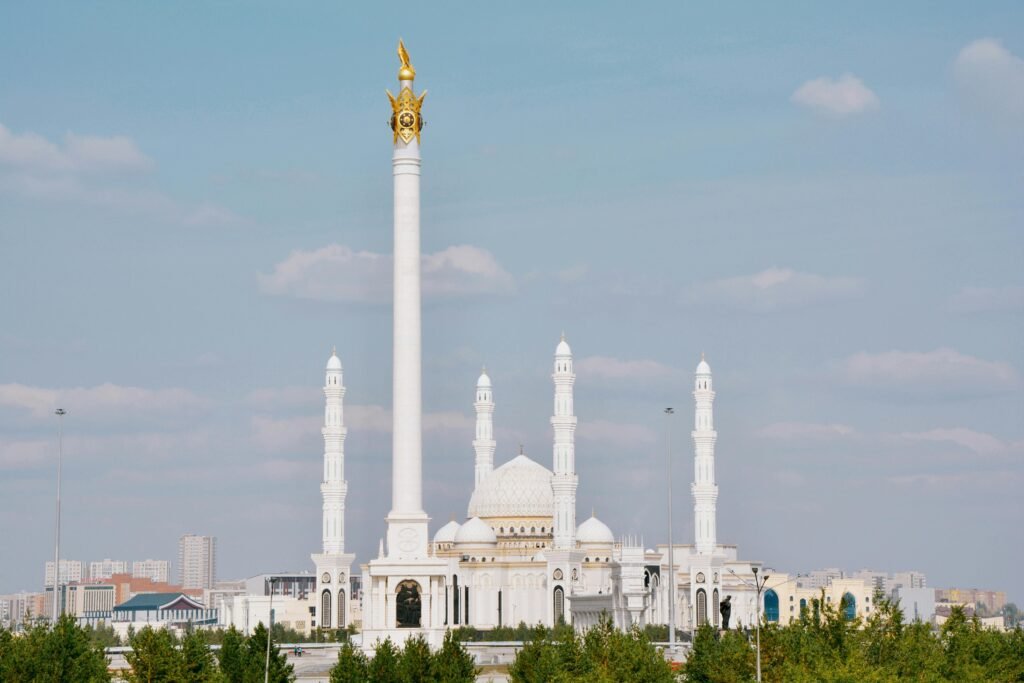Islamic News: Great Islamic Scholars and History Of More Empires

In today’s world, Islamic News plays an essential role in informing millions about the rich heritage and ongoing developments within the Muslim community. The message of Islam is timeless and continues to inspire people globally. Through Islamic News, readers gain deep insight into the profound legacy of Islamic scholars, the sweeping chapters of Islamic history, and significant cultural milestones such as the Islamic Hijri calendar, the Islamic New Year, and sacred practices like Roza and Salah. This comprehensive post explores these topics with clarity and reverence, providing valuable Islamic information for those eager to understand the essence and impact of Islam.
What is the Islamic religion?
To truly appreciate the significance of Islamic News, one must first understand what the Islamic religion is. Islam is a monotheistic faith centered on the belief in one God—Allah. The word Islam itself means “submission” or “surrender” to the will of Allah. This divine submission is the foundation of the life and faith of every Muslim. The religion was revealed to the Prophet Muhammad (peace be upon him) through the Holy Qur’an, which is the final and complete guidance for humankind.
The teachings of Islam are rooted in the five pillars, acts of worship and devotion that connect Muslims spiritually to Allah and to each other. These pillars are the backbone of Muslim life and provide a comprehensive framework for ethical and social conduct. Understanding the core of Islam allows followers to live harmoniously, fulfill their duties, and strive for spiritual growth.
The Significance of Islamic News
Islamic News keeps the Muslim Ummah connected, informed, and spiritually uplifted. Through the latest updates and in-depth articles, Islamic News reveals the unfolding stories of Islamic achievements, challenges, and celebrations worldwide. Beyond just current events, Islamic News educates readers about the rich tapestry of Islamic history, the contributions of remarkable Islamic scholars, and the spiritual essence of Islamic traditions and rituals.
Maintaining a high level of authenticity and reverence, Islamic News serves as a beacon of light for those who seek to deepen their knowledge and faith in Islam. Whether covering historical retrospectives or contemporary developments, Islamic News preserves the dignity and respect of the religion while fostering unity among Muslims everywhere.
Islamic History: The Glory of Past Empires
The story of Islamic history is a magnificent chronicle of faith, resilience, and enlightenment. It begins with the revelation of the Qur’an to the Prophet Muhammad (peace be upon him) in the early 7th century CE and expands through the growth of Islamic civilizations, empires, and cultural institutions.
The Early Islamic Period
The early days of Islam witnessed incredible growth and transformation. The Prophet’s migration (Hijrah) from Mecca to Medina in 622 CE marks the beginning of the Islamic Hijri calendar, a significant timekeeping system for Muslims worldwide. This journey established the first Islamic state and laid the foundation for a just and moral society based on Islamic principles.
The Umayyad and Abbasid Empires
Following the Prophet’s passing, the Islamic empire expanded under the Umayyad dynasty, spreading Islam from the Iberian Peninsula to South Asia. The Umayyad era is notable for its administrative developments and the construction of iconic structures, such as the Dome of the Rock.
The Abbasid period succeeded the Umayyads, ushering in a golden age where science, philosophy, and the arts flourished. Cities like Baghdad became centers of learning, where scholars translated ancient texts and made original contributions to various fields. This era solidified the reputation of Islam as a religion of knowledge and wisdom.
The Ottoman Empire
The Ottoman Empire, spanning from the late 13th century to the early 20th century, was one of the most influential Islamic empires in history. It preserved and spread Islamic culture while establishing a sophisticated system of governance. The Ottomans contributed greatly to architecture, law, and education, leaving a lasting legacy in many parts of the world.
Great Islamic Scholars: Luminaries of Faith and Knowledge
Throughout history, many remarkable Islamic scholars have contributed to the intellectual and spiritual enrichment of the Muslim Ummah. Their works in theology, jurisprudence, philosophy, and science continue to inspire contemporary Muslims and the wider world.
Ibn Sina (Avicenna)
Known for his medical and philosophical writings, Ibn Sina was a towering figure in the Islamic Golden Age. His book, The Canon of Medicine, was used in Europe and the Muslim world for centuries as a primary medical text.
Imam Al-Ghazali
A profound theologian and philosopher, Al-Ghazali’s work helped reconcile Islamic theology with philosophy. His writings on spirituality and ethics remain a cornerstone of Islamic education.
Ibn Khaldun
Often called the father of sociology and historiography, Ibn Khaldun introduced groundbreaking concepts about society, economics, and history that are still studied today.
Fatima al-Fihri
A visionary female scholar, Fatima founded the University of Al Quaraouiyine in Morocco, recognized as the oldest existing, continually operating educational institution in the world.
The contributions of these scholars and many others are highlighted regularly in Islamic News, emphasizing the richness of Islamic intellectual heritage.
Understanding the Islamic Hijri Calendar and Islamic New Year

The Islamic Hijri calendar is a lunar calendar, counting years from the Prophet Muhammad’s (peace be upon him) migration to Medina. Unlike the Gregorian solar calendar, the Hijri calendar consists of 12 lunar months totaling approximately 354 days.
The beginning of the Islamic New Year, or Ras al-Sanah al-Hijriyah, occurs on the first day of Muharram, the first month of the Islamic Hijri calendar. Though it is not celebrated with festivities like the Gregorian New Year, the Islamic New Year is a time for reflection, renewal, and spiritual recommitment.
Many Muslims use this time to ponder their personal and communal relationship with Allah and to set intentions for growth in faith and good deeds in the coming year. The observance is deeply meaningful, as it connects Muslims with a pivotal moment in Islamic history — the Hijrah — symbolizing courage, sacrifice, and divine guidance.
What Is Eid? Celebrating Faith, Sacrifice, and Community
The two main Eid festivals are celebrated annually by Muslims worldwide. These occasions hold immense spiritual significance and serve as moments of joy, gratitude, and communal unity.
Eid al-Fitr
Known as the “Festival of Breaking the Fast,” Eid al-Fitr marks the end of Ramadan, the holy month of fasting. After a month of self-restraint, spiritual reflection, and empathy for the poor, Muslims gather to perform special prayers and share festive meals. The day is also marked by acts of charity (Zakat al-Fitr) to help those in need enjoy the celebrations.
Eid al-Adha
The “Festival of Sacrifice” commemorates the willingness of Prophet Ibrahim (Abraham) to sacrifice his son in obedience to Allah’s command. It coincides with the annual pilgrimage to Mecca (Hajj). Muslims around the world slaughter an animal (Qurbani) and distribute the meat among family, friends, and the needy, symbolizing devotion, generosity, and community solidarity.
Both Eids are times of thanksgiving and joy, deeply rooted in the principles of Islam.
What is Roza and Salah?
The practice of Roza and Salah forms the heart of daily worship in Islam.
Roza (Fasting)
Roza, or fasting, especially during the month of Ramadan, is one of the five pillars of Islam. It involves abstaining from food, drink, and other physical needs from dawn until sunset. Fasting teaches self-discipline, patience, and empathy towards the less fortunate. It is a time for Muslims to purify their hearts, seek forgiveness, and renew their faith.
Salah (Prayer)
Salah is the ritual prayer performed five times daily by Muslims. These prayers are direct communication with Allah and provide spiritual structure throughout the day. Each prayer involves physical movements and recitations that enhance mindfulness, humility, and submission to Allah. Regular performance of Salah strengthens a Muslim’s relationship with their Creator and serves as a constant reminder of the purpose of life.
Islamic Information: Preserving Faith and Unity
Islamic News serves as a vital platform for disseminating accurate and authentic Islamic information. In a world filled with misinformation, reliable Islamic News ensures that Muslims receive guidance grounded in the teachings of the Qur’an and Sunnah.
Whether covering religious teachings, historical reflections, or contemporary issues facing the Muslim world, Islamic News promotes understanding, tolerance, and unity. It encourages Muslims to embrace their faith with pride and confidence, empowering them to contribute positively to society.
Conclusion
The vast legacy of Islam shines through the annals of history, great scholars, and vibrant cultural traditions. Islamic News continues to enlighten and connect Muslims worldwide by sharing this heritage and current developments. From understanding the Islamic religion to exploring Islamic history, the Islamic Hijri calendar, Islamic New Year, Eid celebrations, and the practices of Roza and Salah, Islamic News is an invaluable source of knowledge and inspiration.
